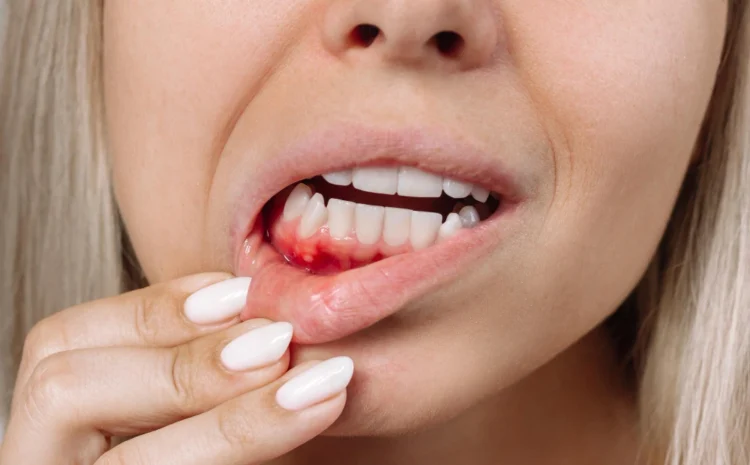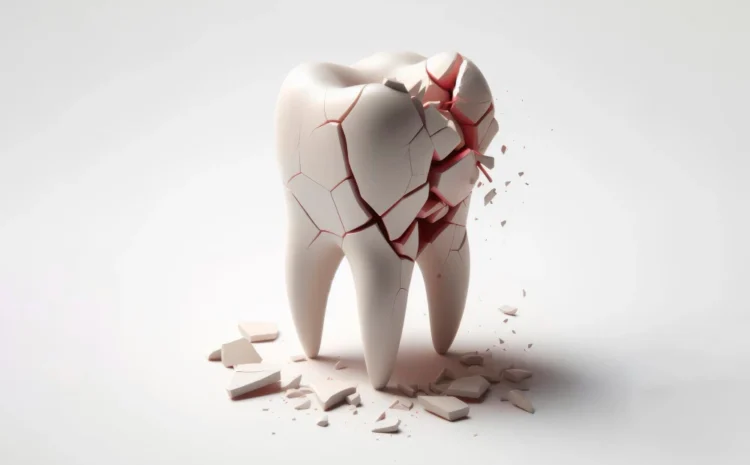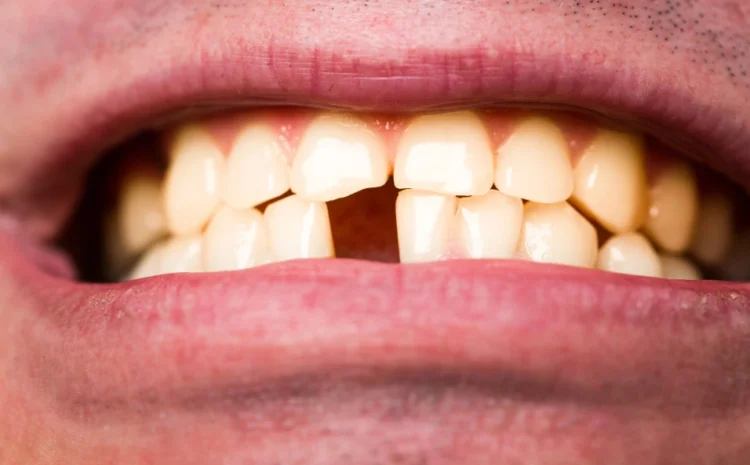
Bleeding Gums Causes: Understanding the Reasons and How to Prevent Them
Bleeding gums are a common dental concern, but they should never be ignored. Even occasional gum bleeding may indicate an underlying oral health issue that requires attention. Understanding the Bleeding Gums Causes can help you take timely action, prevent complications, and maintain strong, healthy gums. This comprehensive guide explains the major reasons behind bleeding gums, key risk factors, and practical prevention strategies recommended by dental professionals, including Dr. Ganesh Bhandari.
What Are the Most Common Bleeding Gums Causes?
Bleeding gums often appear during brushing, flossing, or eating. While many patients assume this is normal, it is usually a sign of gum irritation or disease. Below are the most common Bleeding Gums Causes explained in detail.
1. Plaque Buildup Leading to Gum Irritation and Inflammation
One of the primary Bleeding Gums Causes is plaque—a sticky, bacteria-filled layer that constantly forms on teeth. When plaque is not removed properly:
- It irritates the gum tissue.
- Causes inflammation (gingivitis).
- Weakens gum integrity.
- Leads to pain, swelling, and bleeding.
How Plaque Causes Bleeding Gums
Plaque contains harmful bacteria that release toxins. These toxins attack the gums, making them red, tender, and prone to bleeding. Over time, untreated plaque hardens into tartar (calculus), which further worsens inflammation and increases bleeding.
2. Vitamin C Deficiency
Vitamin C plays a critical role in maintaining gum integrity and healing capacity. When the body lacks sufficient Vitamin C:
- Gums become weak and fragile.
- Collagen production reduces.
- Blood vessels under the gum surface become more prone to rupture.
- Even mild brushing can cause bleeding.
Symptoms of Vitamin C Deficiency
- Swollen gums
- Easy bruising
- Slow wound healing
- Fatigue
- Frequent gum bleeding
This makes Vitamin C deficiency an important but often overlooked Bleeding Gums Cause, especially in individuals with a poor diet.
3. Hard or Aggressive Brushing
Many patients believe brushing harder cleans the teeth better. In reality, aggressive brushing can damage the gums.
How Hard Brushing Causes Bleeding
- Scrapes away delicate gum tissue
- Causes gum recession
- Makes gums sensitive and prone to bleeding
- Leads to enamel wear, increasing tooth sensitivity as well
Using a hard-bristled brush also increases the risk of gum trauma.
4. Rough Filling or Crown Margins
Dental restorations like fillings or crowns must fit precisely. When they have rough or overhanging margins, they become a major contributor to gum issues.
Why Rough Margins Cause Bleeding
- They trap food particles.
- Lead to plaque accumulation around the area.
- Cause continuous irritation to surrounding gum tissue.
- Create inflammation and frequent gum bleeding.
Patients with old or ill-fitting crowns often experience localized gum bleeding around one or two teeth, which is a key sign of this issue.
5. Hormonal Changes
Hormonal fluctuations, especially in women, can increase gum sensitivity. Conditions include:
- Pregnancy
- Menstruation
- Puberty
- Menopause
Higher hormone levels increase blood flow to the gums, making them more reactive and more likely to bleed.
6. Certain Medications
Some medications thin the blood or reduce saliva production, both of which can contribute to gum bleeding. Common examples include:
- Blood thinners
- Antihypertensives
- Immunosuppressants
- Anticonvulsants
If gum bleeding starts after beginning a new medication, consultation with your doctor or dentist is important.
7. Poor Oral Hygiene Habits
Skipping brushing, flossing irregularly, or avoiding professional cleanings allows bacteria to multiply, increasing the risk of gingivitis and bleeding gums. Poor hygiene remains one of the most preventable Bleeding Gums Causes.
Major Bleeding Gums Causes and Their Effects
Cause | Effect on Gums |
Plaque & tartar | Inflammation, swelling, bleeding |
Vitamin C deficiency | Weak gums, slow healing |
Hard brushing | Gum trauma, recession, bleeding |
Rough filling/crown margins | Food lodgement, irritation, bleeding |
Hormonal changes | Increased gum sensitivity |
Medications | Blood thinning, dryness, bleeding risk |
Poor oral hygiene | Gingivitis and bleeding |
How to Prevent Bleeding Gums
Preventing gum bleeding involves simple daily habits and regular dental care. Dr. Ganesh Bhandari recommends the following evidence-based strategies:
1. Maintain Good Oral Hygiene
Consistent oral care is the most effective way to prevent bleeding gums.
Essential Steps
- Brush twice a day using a soft-bristled toothbrush
- Use gentle, circular brushing motions
- Floss daily to remove plaque between teeth
- Consider using an antibacterial mouthwash
Good hygiene helps reduce plaque buildup and strengthen gum health.
2. Adopt a Proper, Balanced Diet
Nutrition plays a key role in oral health. To prevent Vitamin C deficiency:
- Include citrus fruits, strawberries, broccoli, tomatoes, bell peppers
- Avoid excessive junk food and sugary snacks
- Stay hydrated to maintain saliva flow
A healthy diet improves gum integrity and healing ability.
3. Regular Dental Check-Ups
Professional dental visits help detect early signs of gum problems. Dentists can monitor gum health, identify faulty restorations, and ensure your oral hygiene efforts are effective.
Recommended Frequency:
Visit your dentist every 6 months or more often if you already experience bleeding.
4. Regular Scaling (Professional Cleaning)
Scaling removes hardened tartar that cannot be eliminated at home. Regular cleaning:
- Reduces inflammation
- Removes plaque from deep areas
- Strengthens gum attachment
- Prevents progression to gum disease
Regular scaling is one of the most important steps to prevent and treat bleeding gums.
5. Repair or Replace Faulty Fillings and Crowns
If bleeding occurs around a single tooth, it may be due to a rough restoration. Dental correction helps:
- Remove overhanging margins
- Prevent food lodgement
- Reduce irritation
- Restore gum health
6. Use Proper Brushing Techniques
Switching to a soft brush and gentle strokes allows gums to heal while still keeping them clean. Avoid harsh scrubbing or horizontal brushing motions.
When to See a Dentist
You should seek expert care immediately if:
- Bleeding persists for more than a week
- Gums are swollen or painful
- You notice bad breath or loose teeth
- Bleeding occurs even without brushing
- There is a specific area of localized bleeding
Early diagnosis prevents the condition from progressing to advanced gum disease (periodontitis).
Conclusion
Understanding the Bleeding Gums Causes is the first step toward improving your oral health. Most causes, such as plaque buildup, hard brushing, Vitamin C deficiency, and faulty restorations, can be managed effectively with timely care and proper hygiene. Preventive measures like good oral hygiene, a proper diet, regular check-ups, and scaling play a crucial role in maintaining healthy gums.
For personalized guidance and expert dental care, consulting a skilled dentist like Dr. Ganesh Bhandari ensures your gum health is managed with precision and care.



